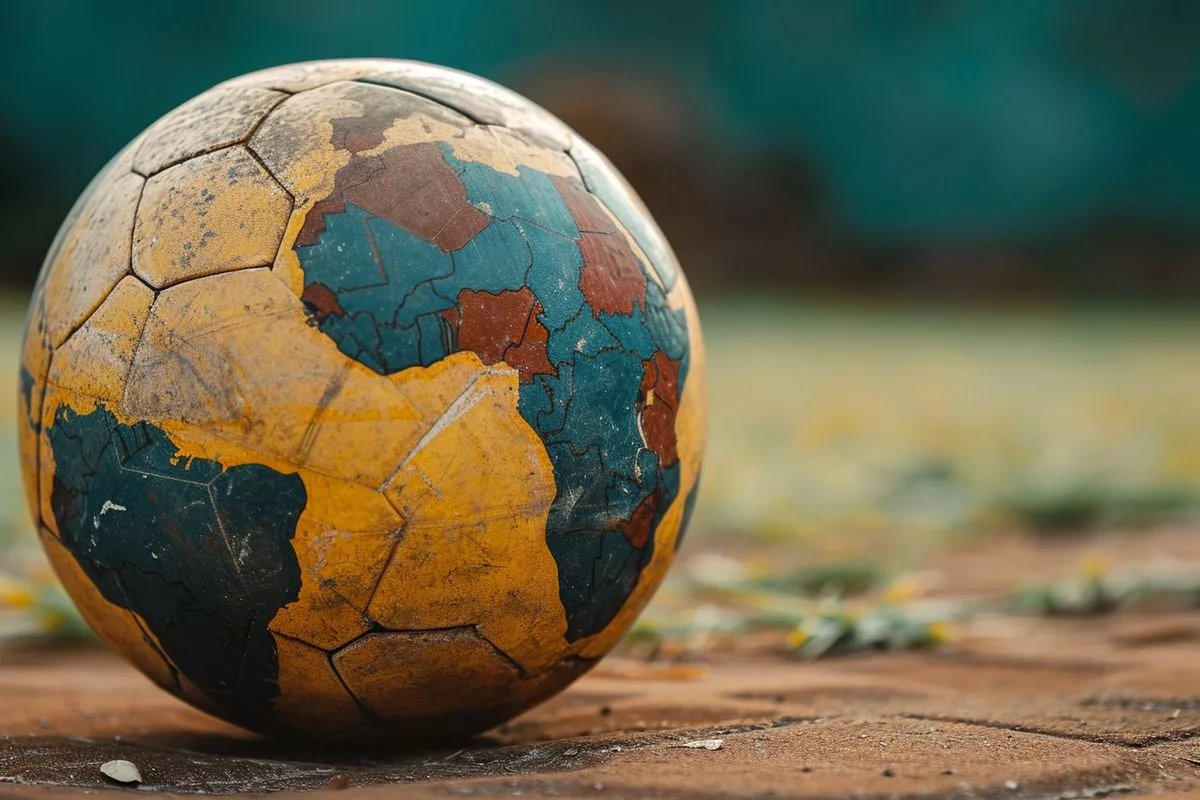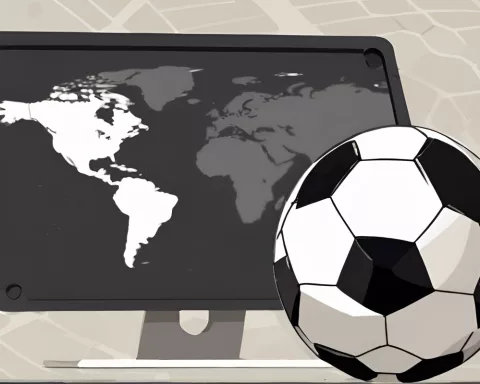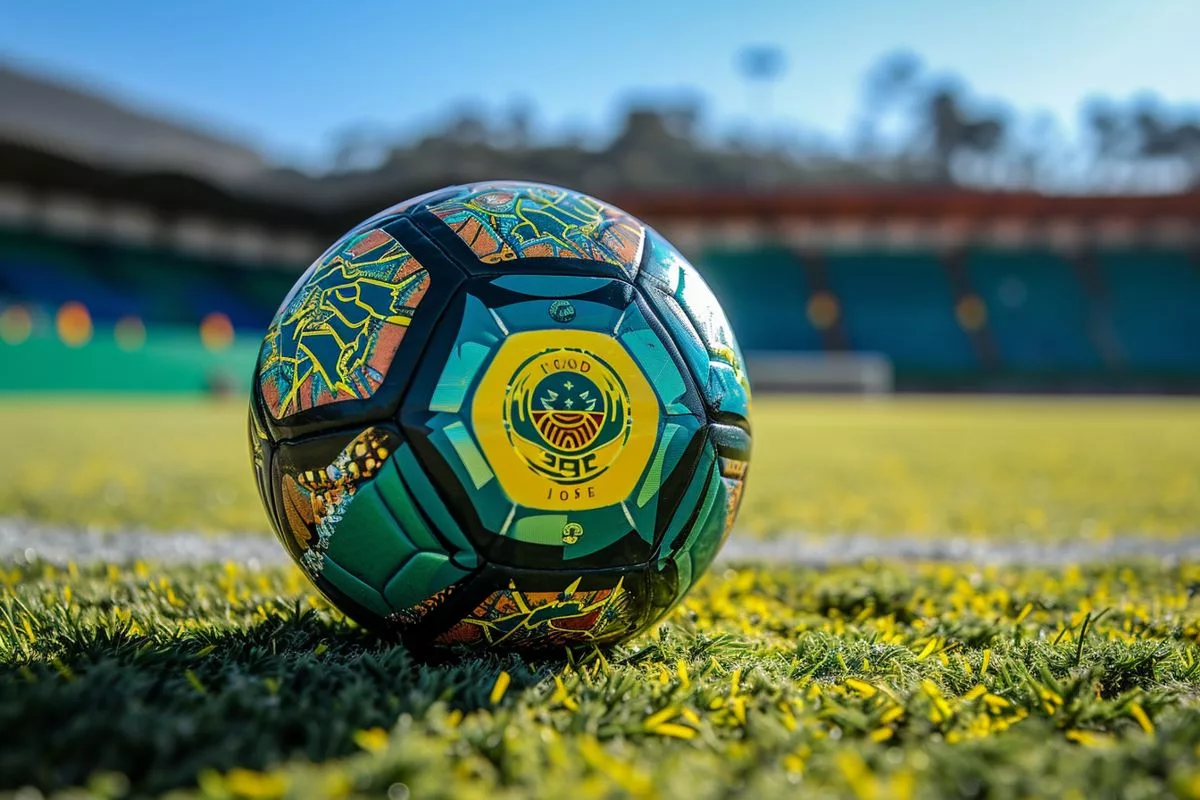The Africa Cup of Nations (AFCON) is taking place in Abidjan, Ivory Coast, after forty years, bringing together 24 skilled teams from across Africa. The tournament will be held in six stadiums, with the final match at the newly-built Alassane Ouattara Stadium. The Ivory Coast government invested $1.5 billion in the event, hoping to showcase their hospitality and African unity. Teams like Egypt, Morocco, and Nigeria, with star players such as Mohamed Salah and Victor Osimhen, are among the favorites to win the tournament.
What is AFCON and Where is it Being Hosted?
AFCON is the Africa Cup of Nations, a football tournament that brings together some of the best teams in Africa. This year’s event is being hosted in Abidjan, Ivory Coast, after a break of forty years. The tournament will consist of 24 teams and will take place in six different stadiums across the country.
The city of Abidjan in the Ivory Coast is set to electrify the African football scene as it hosts the Africa Cup of Nations (AFCON) after a pause of forty years. This exhilarating 24-team tournament, set to conclude on the 11th of February, assembles some of the continent’s most skillful teams. They prepare for a fierce contest, including the much-anticipated clash between Mohamed Salah’s Egypt and the hosting nation amidst a group of other strong contenders aiming for the title.
Previous Victors and New Challenges
In the last tournament, it was Senegal, under the leadership of Sadio Mane, that claimed the top spot. However, this year’s event expects formidable competition from Morocco and Nigeria. The latter team’s main force is Victor Osimhen, the current holder of the African footballer of the year title. The sports spectacle will commence with a Group A match between the host nation and Guinea-Bissau at the newly built Alassane Ouattara Stadium at Ebimpe.
The Ebimpe stadium, capable of housing up to 60,000 spectators, was initially marked for a mid-2021 tournament. Still, concerns about the rainy season led the organizers to revert to the traditional January and February timing for the competition.
Hosting the Tournament: A Monumental Task
Besides Ebimpe, which will be the venue for the tournament’s finale, games will also take place in five other stadiums. These are in capital city Yamoussoukro, neighbouring Bouake, coastal city San Pedro, and Korhogo near the Mali and Burkina Faso borders. This significant endeavor, the first since Ghana hosted the event in 2008, has drawn a substantial investment of $1.5 billion from the Ivorian government. During his New Year’s address, President Ouattara urged the public to ensure the tournament becomes a grand celebration of youth, Ivorian hospitality, and African unity.
Nevertheless, the shadow of the tragic incident during the last AFCON in Cameroon, where eight people died in a stampede at Olembe Stadium, still looms large. Despite this, the local citizens are fervently hoping that their beloved team, affectionately known as ‘the Elephants‘, will secure their third title.
The Contenders and Their Stars
In ‘the Elephants’, Borussia Dortmund striker Sebastien Haller is the most recognized player. Their rivals, Senegal, will heavily depend on their star player Mane, who recently moved to Al Nassr in Saudi Arabia. The anticipation for the tournament is palpable in his words as he expresses the strength of this year’s contenders.
Group C includes the likes of Cameroon, Gambia and Guinea, with the last being led by on-form Serhou Guirassy of the German Bundesliga’s Stuttgart.
Egypt, steered by football titan Salah, is another serious contender, aiming to win an unmatched eighth title for his nation. Meanwhile, Morocco, the first African country to reach the World Cup semi-finals a year ago in Qatar, eyes their second AFCON title and their first since 1976.
The Big Names and Rising Stars
The Nigerian side, featuring Napoli striker Osimhen, is another team predicted to make a significant impact, although their chances are slightly tarnished by the injury of Bayer Leverkusen forward Victor Boniface.
The champions of 2019, Algeria, find themselves in Group D, alongside Burkina Faso, Mauritania, and Angola. South Africa, relying on their top club side, Mamelodi Sundowns, is making a return after missing the previous edition. They will compete against Tunisia, Mali, and Namibia in Group E.
As the tournament unfolds, this year’s AFCON assures a breathtaking display of athletic talent. It serves as a testament to the continent’s passion for the beautiful game, promising an enthralling spectacle for all football lovers.
1. What is AFCON and where is it being hosted?
AFCON is the Africa Cup of Nations, a football tournament that brings together some of the best teams in Africa. This year’s event is being hosted in Abidjan, Ivory Coast, after a break of forty years. The tournament will consist of 24 teams and will take place in six different stadiums across the country.
2. Who are the favorites to win the tournament?
Egypt, Morocco, and Nigeria, with star players such as Mohamed Salah and Victor Osimhen, are among the favorites to win the tournament.
3. Who won the last tournament, and who are the new challengers?
In the last tournament, Senegal, under the leadership of Sadio Mane, claimed the top spot. However, this year’s event expects formidable competition from Morocco and Nigeria, with Victor Osimhen as Nigeria’s main force.
4. Where are the different stadiums located, and how much did the government invest in the tournament?
The tournament will be held in six stadiums: Ebimpe (the venue for the tournament’s finale), Yamoussoukro, Bouake, San Pedro, and Korhogo. The Ivorian government invested $1.5 billion in the event.
5. Who are the big names and rising stars to watch out for?
Borussia Dortmund striker Sebastien Haller is the most recognized player in the Ivory Coast team, while Senegal will heavily depend on their star player Mane. Egypt’s Mohamed Salah is another serious contender, aiming to win an unmatched eighth title for his nation. Rising stars include Serhou Guirassy of Guinea and Napoli striker Osimhen for Nigeria.
6. What can we expect from this year’s AFCON?
This year’s AFCON assures a breathtaking display of athletic talent and serves as a testament to the continent’s passion for the beautiful game. It promises an enthralling spectacle for all football lovers. The tournament will conclude on February 11th with the final match at the newly-built Alassane Ouattara Stadium.












